- Home
- Patricia Smiley
Cool Cache
Cool Cache Read online
Table of Contents
Title Page
Copyright Page
Dedication
Acknowledgements
Chapter 1
Chapter 2
Chapter 3
Chapter 4
Chapter 5
Chapter 6
Chapter 7
Chapter 8
Chapter 9
Chapter 10
Chapter 11
Chapter 12
Chapter 13
Chapter 14
Chapter 15
Chapter 16
Chapter 17
Chapter 18
Chapter 19
Chapter 20
Chapter 21
Chapter 22
Chapter 23
Chapter 24
Chapter 25
Chapter 26
Chapter 27
Chapter 28
Chapter 29
Chapter 30
Chapter 31
Chapter 32
Chapter 33
Chapter 34
Chapter 35
Chapter 36
Chapter 37
Also by Patricia Smiley
False Profits
Cover Your Assets
Short Change
Obsidian
Published by New American Library, a division of
Penguin Group (USA) Inc., 375 Hudson Street,
New York, New York 10014, USA
Penguin Group (Canada), 90 Eglinton Avenue East, Suite 700, Toronto,
Ontario M4P 2Y3, Canada (a division of Pearson Penguin Canada Inc.)
Penguin Books Ltd., 80 Strand, London WC2R 0RL, England
Penguin Ireland, 25 St. Stephen’s Green, Dublin 2,
Ireland (a division of Penguin Books Ltd.)
Penguin Group (Australia), 250 Camberwell Road, Camberwell, Victoria 3124,
Australia (a division of Pearson Australia Group Pty. Ltd.)
Penguin Books India Pvt. Ltd., 11 Community Centre, Panchsheel Park,
New Delhi - 110 017, India
Penguin Group (NZ), 67 Apollo Drive, Rosedale, North Shore 0632,
New Zealand (a division of Pearson New Zealand Ltd.)
Penguin Books (South Africa) (Pty.) Ltd., 24 Sturdee Avenue,
Rosebank, Johannesburg 2196, South Africa
Penguin Books Ltd., Registered Offices:
80 Strand, London WC2R 0RL, England
First published by Obsidian, an imprint of New American Library,
a division of Penguin Group (USA) Inc.
First Printing, June 2008
Copyright © Patricia Smiley, 2008
All rights reserved
OBSIDIAN and logo are trademarks of Penguin Group (USA) Inc.
LIBRARY OF CONGRESS CATALOGING-IN-PUBLICATION DATA
Smiley, Patricia.
Cool cache: a Tucker Sinclair mystery / Patricia Smiley.
p. cm.
eISBN: 9781101384923
Without limiting the rights under copyright reserved above, no part of this publication may be reproduced, stored in or introduced into a retrieval system, or transmitted, in any form, or by any means (electronic, mechanical, photocopying, recording, or otherwise), without the prior written permission of both the copyright owner and the above publisher of this book.
PUBLISHER’S NOTE
This is a work of fiction. Names, characters, places, and incidents either are the product of the author’s imagination or are used fictitiously, and any resemblance to actual persons, living or dead, business establishments, events, or locales is entirely coincidental.
The publisher does not have any control over and does not assume any responsibility for author or third-party Web sites or their content.
The scanning, uploading, and distribution of this book via the Internet or via any other means without the permission of the publisher is illegal and punishable by law. Please purchase only authorized electronic editions, and do not participate in or encourage electronic piracy of copyrighted materials. Your support of the author’s rights is appreciated.
http://us.penguingroup.com
Dedicated to George and Lillian Smiley
Acknowledgments
I wish to express my gratitude to the following people:
First readers William Solberg and Patricia Fogarty.
Los Angeles Police detective Rich Householder for answering endless questions with infinite patience. Captain Andy Svatek for coaching me on how to fly an airplane to Santa Catalina Island and for coming up with the title for this novel. John Bibb, MD, for enlightening me about chest wounds and ER/ICU procedures. If I got anything wrong, it was no fault of theirs.
My editor, Kristen Weber, and my agent, Scott Miller. How fortunate I am to have you both in my corner.
Finally, my heartfelt appreciation to the readers who have followed Tucker through her many adventures. You make it all worthwhile.
Chapter 1
It was the light in the display case that made me stop.
Helen never left it on. It was past eight p.m., and Nectar had been closed for hours. That wouldn’t matter to most people, but I have an overly developed sense of duty. When I take on a business client, it’s like adopting a puppy. Fluffy may leave teeth marks on my favorite shoes or whine to get up on the bed when I’m trying to sleep, but I’ve made a commitment to her and I’m going to see it through to the end. Helen Taggart engaged my firm to save her chocolate shop, and since Tucker Sinclair and Associates had only one associate—me—it was my job to make everything right.
Rain from an early November storm swept across the Boxster’s windshield in unrelenting sheets as I drove around the block past the palm trees on Brighton Way and the arched doorway of Christie’s auction house. The street was still lined with cars. I nosed into the alley in back of the building and found a Hummer as large as the Rose Bowl in one of the shop’s two reserved parking spaces. It had a BABY ON BOARD sign hanging in the back window. TOT IN TANK seemed more appropriate. A Mercedes was parked in the other spot. The Mercedes was new. It still had the GARVEY MOTORS—ALHAMBRA advertisement where the license plate should have been.
Neither car belonged to Helen Taggart. Both drivers had ignored the threatening NECTAR PARKING ONLY sign painted on the stucco wall. Helen would be upset if the valets from the restaurant next door were using her spaces for overflow traffic. She’d warned the owner on numerous occasions that she often stopped by the shop at night to drop off supplies or do paperwork, and even if it was chichi Beverly Hills, she didn’t want to walk alone in the dark from the public garage a block away. Her polite requests had been ignored time and again. Friendly reminders eventually escalated into skirmishes, then to battles, and finally to all-out verbal warfare.
The windows of the Mercedes were tinted, so I couldn’t see through the glass, but steam billowed from the exhaust pipe. The engine was running. I activated the turn signal and honked the horn, hoping whoever was in there would get the message.
A moment later, the driver’s-side window glided halfway down. A man’s hand appeared, holding a burning cigarette. He flicked the butt into the air. It flashed red as it arced upward and then fell into a puddle of rainwater. The window closed. The car eased forward and headed down the alley. If the driver was a valet from the restaurant, his lazy pace seemed abnormal. Usually it was all about screeching tires and burning rubber. At least he’d vacated the spot.
The alley was dark. The streetlights cast eerie shadows on the distant boulevard. Rain drummed the soft top of my convertible as I pulled in and cut the engine. I didn’t have an umbrella, so I stepped out of the car and took off my cotton jacket, spreading it over my head like a pair of wings. In no time, I’d be soaked.
I ran toward Nectar, drawing in the odo
r of rotting food from the nearby Dumpster. That’s when I noticed the back door was ajar. There was no sign of forced entry, so Helen was probably in the store. It just seemed odd she’d leave the door unlocked this late at night. I thought about calling the police, but I didn’t want to overreact. So I decided to investigate before doing anything rash.
Curiosity had gotten me in trouble before, so I dug out a canister of pepper spray from my purse. I poised my finger on the release button and nudged open the door with my shoulder, listening to the groan of hinges in need of lubrication.
It was dark inside. Tiny needles of tension prickled the flesh along my neck. I fought to keep my voice from faltering as I called out Helen’s name. There was no response. I leaned toward the blackness, listening for sounds like breathing or shoes slapping against the tile floor. All I heard was the muted hum of a compressor motor from the walk-in refrigerator.
I ran my hand along the wall, searching for the light switch. I flipped it on. Nothing. The fluorescent bulbs must have burned out. Helen would need to replace them in the morning. One more expense for her challenged budget.
My fingers groped inside my purse for the flashlight. My thumb pressed against the switch. I aimed the beam of light toward the gloom, half expecting to see a dark figure crouching in a corner, waiting to pounce. But the workroom was empty. I stepped over the threshold. The smell of wet cotton from my jacket mingled with the aroma of bitter cocoa and something else, something foreign—the faint odor of garlic.
There was a round aluminum foil container on one of the marble tabletops where Helen worked her magic. The lid was off but the food looked untouched—shrimp sautéed in garlic. If she was experimenting with some kind of seafood truffle, I didn’t think it had much of a future.
The shop consisted of four rooms: the front retail store, the back workroom, a small bathroom, and a cubbyhole Helen used as an office. There was no sign of life in the workroom or in her office, so I inched along past metal shelves lined with baking pans, dipping forks, chocolate molds, graters, and copper pots until I reached the retail store. I turned on the overhead light and stepped into a room filled with the heady aromas of chocolate and coffee beans. A wave of relief swept over me when I saw I was alone.
The room held tiered glass cases and small round tables where Nectar’s customers lingered over cappuccinos and artisanal chocolates Helen made from recipes passed down from her Belgian great-grandfather. Hanging on the wall behind the counter was an article I’d pitched to the Los Angeles Times. The paper had featured the store in the food section two weeks earlier, along with a photograph of Helen in the retail store. Since then, Nectar had seen a bump in sales.
Something about the retail store looked different. I just couldn’t put my finger on why. I glanced at the photograph again. In it, Helen was holding a tray of chocolates. On the wall behind her were three shelves, each displaying various chocolate-related objects—vintage cocoa tins, a Spanish molinillo, an antique Cadbury heart-shaped candy box, and a replica of a Mayan spouted chocolate pot. That’s when I realized what was wrong. The shelves weren’t there anymore.
I raised the pepper spray to eye level and listened for sounds. Silence. I switched off the light in the display case and the one overhead and was making my way back to the workroom when I felt pressure under my foot. The beam from the flashlight revealed one of Helen’s molded chocolates, called L.A. Noir, crushed beneath my shoe. I scraped off what was left of the shell and the soft ganache and tossed it in a nearby wastebasket.
There was another chocolate under the table and another by the door of the walk-in refrigerator. Helen was meticulous in her kitchen. She wouldn’t have been that careless. I followed the trail to the refrigerator and pulled on the cold metal handle of the door.
Inside, a single lightbulb illuminated shelves lined with packages of unsalted butter, heavy whipping cream, sugar, and bars of solid chocolate. On the floor were several more candies. My clothes were damp from the rain, which made the air seem unbearably cold. My body began to tremble. I stepped out of the refrigerator, closing the door behind me.
The darkness was making me edgy. I wanted to go home to the light, but first I had to call Helen to let her know about the unlocked door and the missing shelves.
The chocolate had left my fingers feeling sticky. I needed to wash my hands. I headed toward the bathroom, pausing just outside the closed door. It was the only room in the store I hadn’t checked yet. Prickles of tension snaked up my spine. I told myself I was being a wuss. No one was in there. I took a deep breath to calm my nerves and slowly opened the door.
A metallic stench hit me like a wrecking ball. I covered my nose to ward off the smell. Gagged. I scanned the room and saw that the paper towel dispenser had been ripped from the wall. A pile of brown towels were strewn across the floor like autumn leaves. On top of them lay the body of a woman. She appeared to be a Latina in her forties. Her eyes were open and red, her pupils dilated. Bruises marred her neck. Her right leg was twisted at an odd angle to her torso. One outstretched arm had turned a purplish color. A feather lay in a pool of blood next to the body. It was long, eighteen inches or so, and brilliant green edged in white. The light made it seem iridescent.
I stumbled out of the bathroom. Out of Nectar. Out to my car. I fumbled for the cell phone in my purse. Clenched my hands to control the trembling. Dialed 911. Then I called Helen.
Chapter 2
Helen Taggart was just leaving the Century City shopping mall when I reached her cell phone. She made it to Nectar minutes after the arrival of a patrol car from the Beverly Hills Police Department and shortly before the homicide detectives and a few members of the paparazzi who must have been cruising Rodeo Drive, looking for celebrities going commando. Before long there were more flashbulbs than at a Hollywood movie premier. After years of hosting movie stars, Eurotrash, and tourist looky-loos in its trendy shops and restaurants, Beverly Hills was used to the attention.
While his partner interviewed Helen, a male homicide detective named O’Brien questioned me in the backseat of a patrol car that smelled like vomit and urine. My clothes would have to be torched before the night was over. He probably couldn’t conduct the interview inside Nectar because it was a crime scene, but the setting he chose seemed calculated to make me feel uncomfortable.
O’Brien was a tall redhead in his midthirties with a boyish face and an attitude that was all business. He sat behind the wheel of the patrol car, staring at me under the dim overhead light. His arm was draped over the bench seat as his fingers drummed against the faux leather. The movement and the red hair on the back of his digits reminded me of a quartet of Irish step dancers.
“It stinks in here,” I said. “Can you open the door?”
O’Brien paused for a moment as if considering my request. Then he lowered the window an inch or so. The annoyed expression on his face made it clear I’d just used up all my goodwill chits. I suppose homicide detectives were trained to suspect everybody, even me, but this guy needed a Miss Manners makeover. Uncooperative witnesses sometimes ended up as dead witnesses, and since I wasn’t into police-assisted suicide, I kept my irritation in check.
O’Brien tilted his head to the side and cracked his neck, an act that must make his chiropractor rub his hands with glee. Then he pulled a small notebook and a pen from his jacket pocket and prepared to take notes.
“So what brought you to Beverly Hills tonight?” he said.
“I had dinner with a friend. I was on my way home when I saw the light in the display case. I knew something was wrong because Helen never leaves it on.”
“Why’s that?”
“Because heat melts chocolate.”
He glared at me. “What’s that supposed to mean?”
“I’m just explaining the basic principles of physics.”
A quarter-sized flush appeared on each of his cheeks. “Did you see anybody going in or out of the store?”
I shook my head. “A Mercedes was parked in
the back when I got here. Somebody was inside. I assumed it was a valet from the restaurant next door.”
“What can you tell me about the driver?”
Our breath had fogged the window glass. I fought claustrophobia by wiping away the condensation with my hand, forgetting for a moment about all the drug-resistant microbes I may have just acquired.
“The car windows were dark. I saw only his arm. No tattoos, but he was a smoker. He flipped a cigarette out of the car window just before he drove away. It’s probably still by the Dumpster, if you want to check for DNA.”
O’Brien seemed dismissive, as if he thought I’d been watching too many episodes of CSI.
“Did you recognize the victim?”
I shook my head. “Helen might know.”
“Does Helen Taggart have any enemies who might want her dead?”
I was taken aback by his question. In the short time I’d known Helen, I’d pegged her as a chronic nurturer. She was president of her condo association. She made chocolate centerpieces for the garden club’s annual fund-raiser. She showered people with attention and gifts. I’d found ample examples when I’d gone through Nectar’s financial records—a new Baume & Mercier watch for her assistant manager’s birthday, and gift certificates at Neiman Marcus for all her employees. She’d once given me a twenty-minute course on how to roast and skin hazelnuts when all I’d asked was “Why are they so shriveled?” Sometimes Helen got touchy, especially when she didn’t feel appreciated, but that didn’t put her at the top of anybody’s hit list. At least I didn’t think so.
“I don’t know,” I said. “You’ll have to ask Helen that question.”
“I’m asking you.”
O’Brien must have missed the training that taught detectives to establish rapport with a witness, because he stared at me with smoky-blue eyes that were cold with suspicion. A moment later, I heard knuckles tapping on glass.
O’Brien’s partner, wearing a yellow hooded raincoat, stood outside the cruiser. Detective Gatan was slim and exotic-looking. She seemed more like a woman who sprayed perfume on a paper strip at the Nordstrom half-yearly sale than a homicide detective investigating a murder in a rain-soaked alley in Beverly Hills.

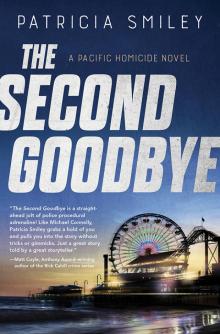 The Second Goodbye
The Second Goodbye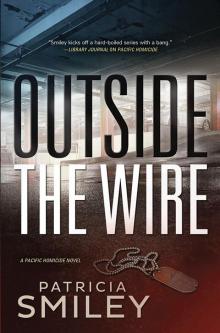 Outside the Wire
Outside the Wire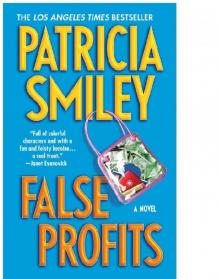 False Profits
False Profits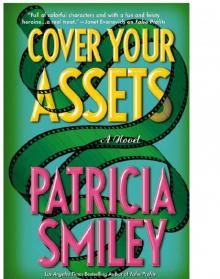 Cover Your Assets
Cover Your Assets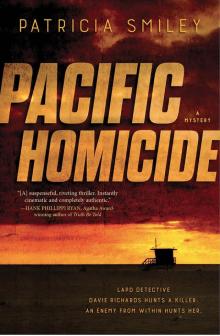 Pacific Homicide
Pacific Homicide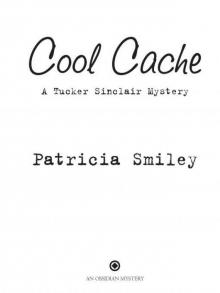 Cool Cache
Cool Cache